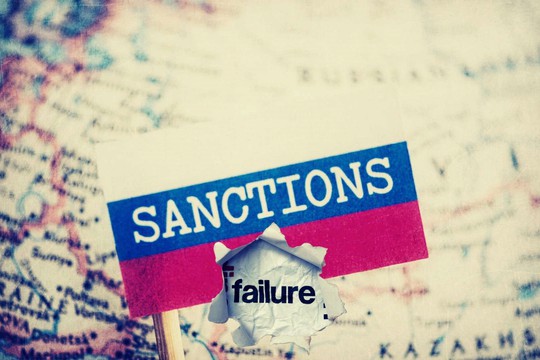The president-elect has said he will use sanctions sparingly while vowing to end the war in Ukraine, renewing questions over their efficacy. Mr. Trump has stated, “I want to use sanctions as little as possible.” And he has made clear that there will be a shift in American policy toward Ukraine, having promised to end the war in a single day, writes ‘The New York Times’.
Experts believe that sanctions and continued military aid are almost certain to be bargaining chips in any negotiations.
So how valuable are the sanction chips that Mr. Trump will hold?
The answer is hotly debated.
Predictions in the early months of the war that economic restrictions would soon undermine President Vladimir V. Putin power or reduce the ruble to “rubble” did not pan out. Mr. Putin remains entrenched in the Kremlin, and his forces are inflicting punishing damage on Ukraine and gaining on the battlefield.
The United States, Europe and their allies reacted with a speed and scale that surprised even the participants. They drastically restricted Moscow’s access to the global financial system and the U.S. dollar, crimping Russia’s ability to sell oil, its most valuable export.
Western banks froze more than $300 billion in Russian assets. Governments prohibited the purchase and sale of a wide range of services and goods, including some advanced technology weapons.
Europe, which had previously gotten 40 percent of its imported gas from Russia, moved to wean itself off its dependence. Russia could start selling even less energy to Europe after Ukraine on Wednesday refused to renew an agreement that allowed for the transit of Russian gas via a pipeline that runs through its territory.
Yet if sanctions have achieved more than some might have imagined, they have had less impact than many people had hoped.
Over time, Russia, with enormous help from China, found several ways to blunt their impact by expanding trade with other countries, exploiting loopholes and evading the law.
China and India, for example, refilled Moscow’s money chest by snapping up a lot of Russian oil. China has also provided Russia access to weapons parts, semiconductors and other essential materials needed for the war.
A lot of Western goods that can be used for both civilian and military purposes have made their way to Russia through countries that don’t participate in sanctions, like Turkey and the United Arab Emirates.
Those who downplay the value of sanctions as a bargaining chip also argue that Western nations did not go far enough or respond fast enough to changing conditions to tighten the squeeze on Russia.
Worries about reducing energy supplies when the price of oil was soaring and inflation was spiraling led the United States and Europe to weaken restrictions on the export of Russian fuel.
The decision to replace more comprehensive European sanctions on Russian oil transactions with a price cap meant that Russia was able to continue to earn enormous revenues from energy exports.
Over time, Russia developed further ways to circumvent the sanctions, like developing its own shadow fleet of vessels to transport oil after restrictions were put on Russia’s use of Western oil tankers and oil spill insurance.
And the European Union is still buying nearly 50 percent of the liquefied natural gas that Russia exports.
Jeffrey Schott, a senior fellow at the Peterson Institute, said Moscow was able to sell too much gas and oil at too high a price. “Sanctions have been applied with one arm tied behind your back,” he said.
Yet even the most valuable bargaining chips that may derive from sanctions may not be enough to persuade Mr. Putin to agree to a settlement that is also acceptable to Ukraine and its neighboring European allies.
In the end, the only valuation of sanctions as a bargaining chip that really counts is Mr. Putin’s, ‘The New York Times’ concludes.
read more in our Telegram-channel https://t.me/The_International_Affairs

 11:41 21.01.2025 •
11:41 21.01.2025 •























